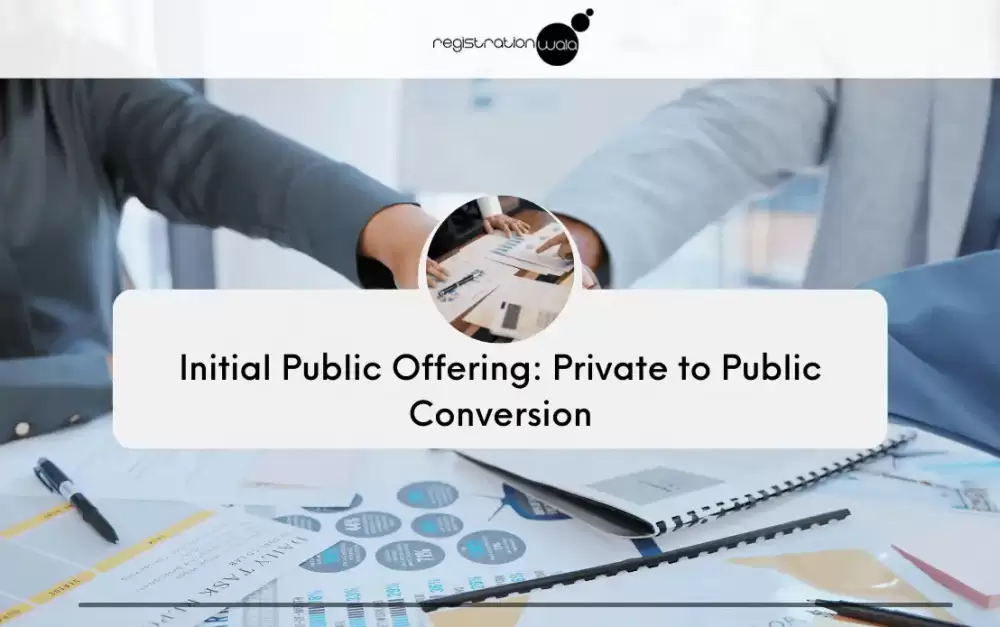Transitioning from Private to Public: The Initial Public Offering Process
- November 26, 2022
- Registrationwala

- Home
- /
- Knowledge Base
- /
- Business Registrations
- /
- Convert Private Limited Company to Public Limited Company
- /
- Transitioning from Private to Public: The Initial Public Offering Process
Transitioning from Private to Public: The Initial Public Offering Process
In this article, we have discussed some of the advantages of releasing an IPO, i.e., a company's Initial Public Offering for Private to Public conversion. Let us look at them one by one.
Get Debt-free before releasing IPO for Private to Public Conversion
Many private limited companies planning to go public can have significant debts. Therefore, such companies can benefit from releasing IPOs. They can reduce their debt by using IPO money. Furthermore, Investors cheer on the IPOs as the credit generated further hikes the debt and financing charges.
Company can use IPO to pay off Shareholders
Although investors do not favour such a move, many PLCs use IPO money to pay off existing shareholders. The co-owners can also cash out using the IPO money. This will significantly impact the company's share prices because it reveals the PLC's owners' lack of confidence.
Improving Liquidity with an IPO for Private to Public Conversion
IPO provides Private Limited Companies with a liquidity path. Without liquidity, owners of Private Companies cannot convert their ownership to any other means of currency/investment. Here, overall market sentiments also affect the IPO’s fate and, therefore, the liquidity path.
Suppose the markets are weak. The company might not receive a fair share price. This move affects the overall funds raised by the private company. The company can wait out the markets or change its course if such a situation arises.
Share Purchase with the IPO
Releasing IPO timely allows the immediate purchase of shares with minimal transactional costs. During an IPO, private company owners can dispose of their stakes. The disposition can take place at the later stages as well. Minority investors, such as venture capitalists, usually dispose of the shares during the IPO. But, the majority shareholders usually dispose of the shares at a later stage once the IPO has settled.
Therefore, an IPO is considered a wealth-creation event. During an IPO, the founders, as well as workers of the company, can monetize their investments.
Financing Future Projects with an IPO for Private to Public Conversion
Some companies fund their future projects using IPO money. In such cases, the Investors and shareholders are inclined towards companies planning for future projects. Companies with such future plans show potential and accountability towards shareholders' money. They also inculcate social responsibility among the public. Many companies are on the verge of a breakthrough. The IPO money gives them the final push towards achieving their breakthrough.
Obtaining Additional Finances
Companies constantly need funds to grow. A company that has raised good capital from a successful IPO is better positioned to seek further funding from government and private lenders. This also puts them in a better position to negotiate the terms of the agreement. Secured loans often require a guarantee, and the funds raised through an IPO can serve as a guarantee.
A successful IPO fuels future projects and improves the company's financial situation. Once the IPO is successful, analysts, financial advisors, traders, and investors discuss the company in greater detail, recommending the public buy more and helping the company get new business and more significant projects. This helps improve the company's balance sheet.
- 2064 views
